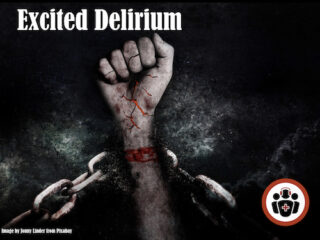Toxicology
Episode 13 Part 2: Killer Coma Cases – The Intoxicated Patient
In part 2 of this episode Dr. Helman presents two more cases to Dr. Carr and Dr. Steinhart, who give us their insights into the common conundrums when it comes to the intoxicated ED patient, and some key clues to the not-so-common life threatening toxicological emergencies that we need to be on the look out for.
Episode 5: Renal Colic, Toxicology Update & Body Packers
This Episode is a potpourri of topics - Renal Colic, Toxicology Update & Body Packers. Dr. Lisa Thurgur and Dr. Paul Rosenberg discuss the common presentation of Renal Colic, with perspectives on the mixed evidence for medical expulsive therapy, the overuse of imaging studies and when we need to worry about the patient who presents with excruciating flank pain. Next, Dr. Thurgur gives us an update on the three most important recent advances in Toxicology for emergency physicians - Lipid Emulsion Therapy, Hydroxocobalamin and Insulin therapy for Calcium Channel Blocker toxicity. Finally, Dr. Rosenberg and Dr. Thurgur discuss the 'ins and outs' of body packers. They review the management of both asymptomatic and symptomatic body backers, highlighting common errors and key therapeutic moves to prevent death.
Episode 2: Excited Delirium
Dr. Margaret Thompson, Canada's toxicology guru and Dr. Dan Cass review the clinical presentation, precipitating factors and important do's and don'ts in managing patients with Excited Delirium Syndrome to prevent sudden death. They update us on the most current guidelines for Excited Delirium Syndrome and discuss the prevalent theories to explain why many of these patients have cardiac arrests. Excited Delirium Syndrome has recently been recognized by the American College of Emergency Physicians as a true medical emergency in which, typically, a young obese male, often under the influence of sympathomimetic drugs, becomes acutely delirious and displays super-human strength, tachypnea, profuse sweating and severe agitation. Usually, there is a prolonged and continued struggle with law enforcement despite physical restraints . Severe acidosis, rhabdomyolysis and hyperkalemia ensue, often leading to a sudden bradyasystolic cardiac arrest. Listen to this fascinating episode to find out how you can recognize and treat this important syndrome.



